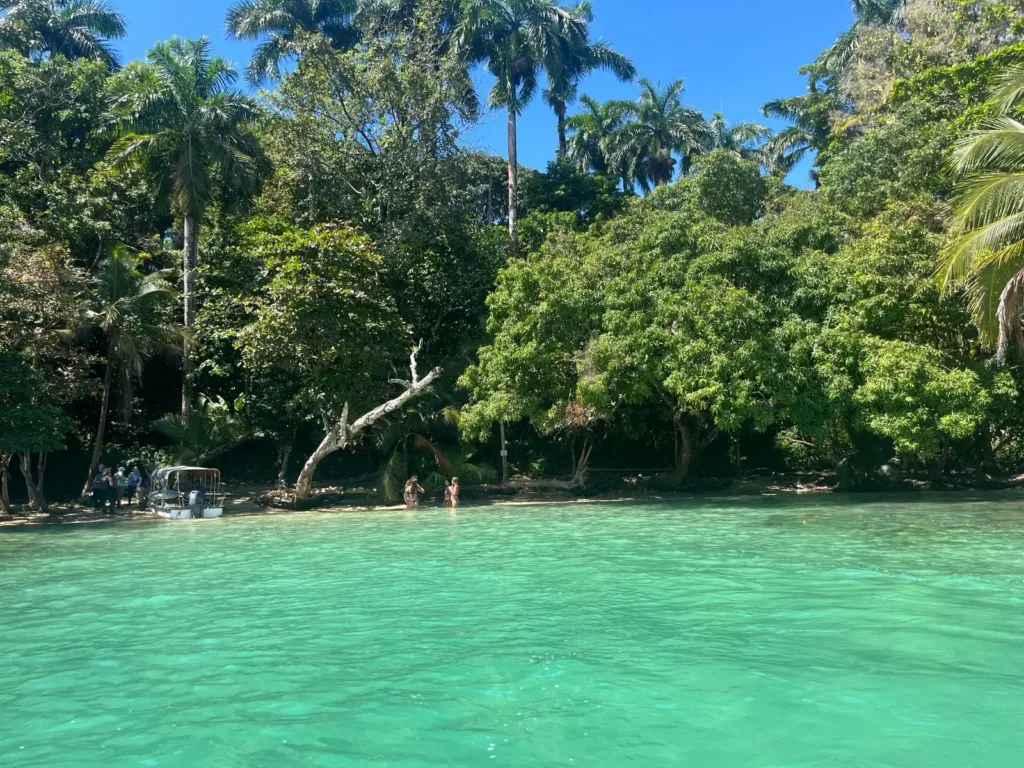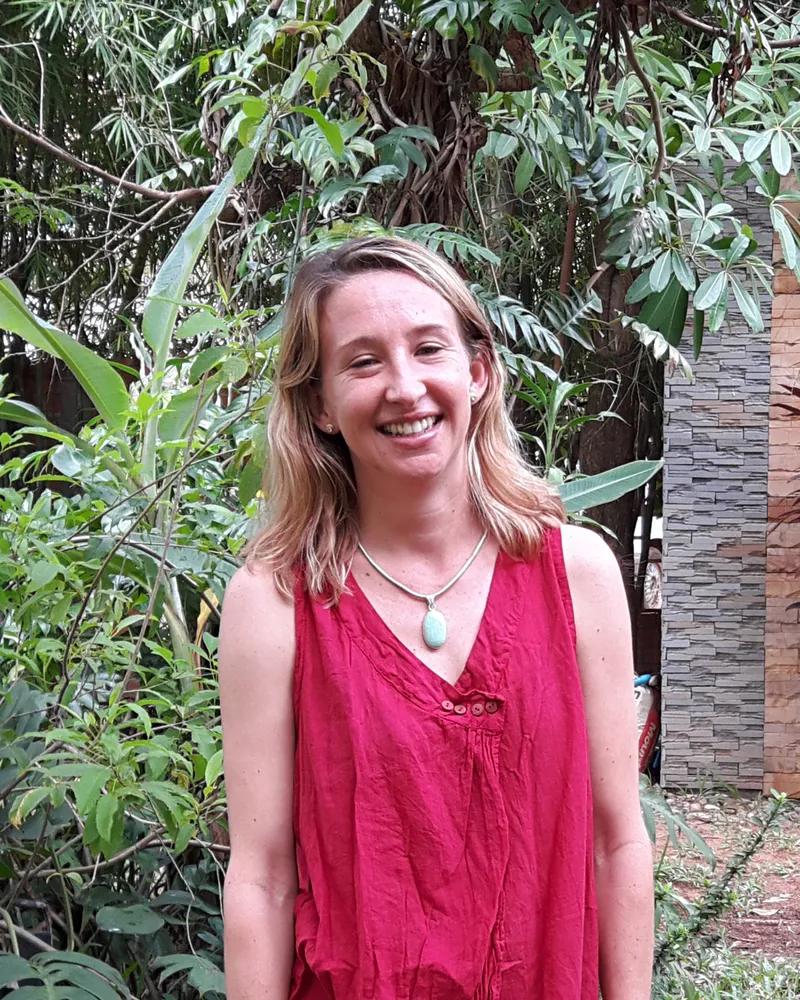
By: Megan English, PhD
Perceptions of Climate Change in Santa Teresa, Costa Rica
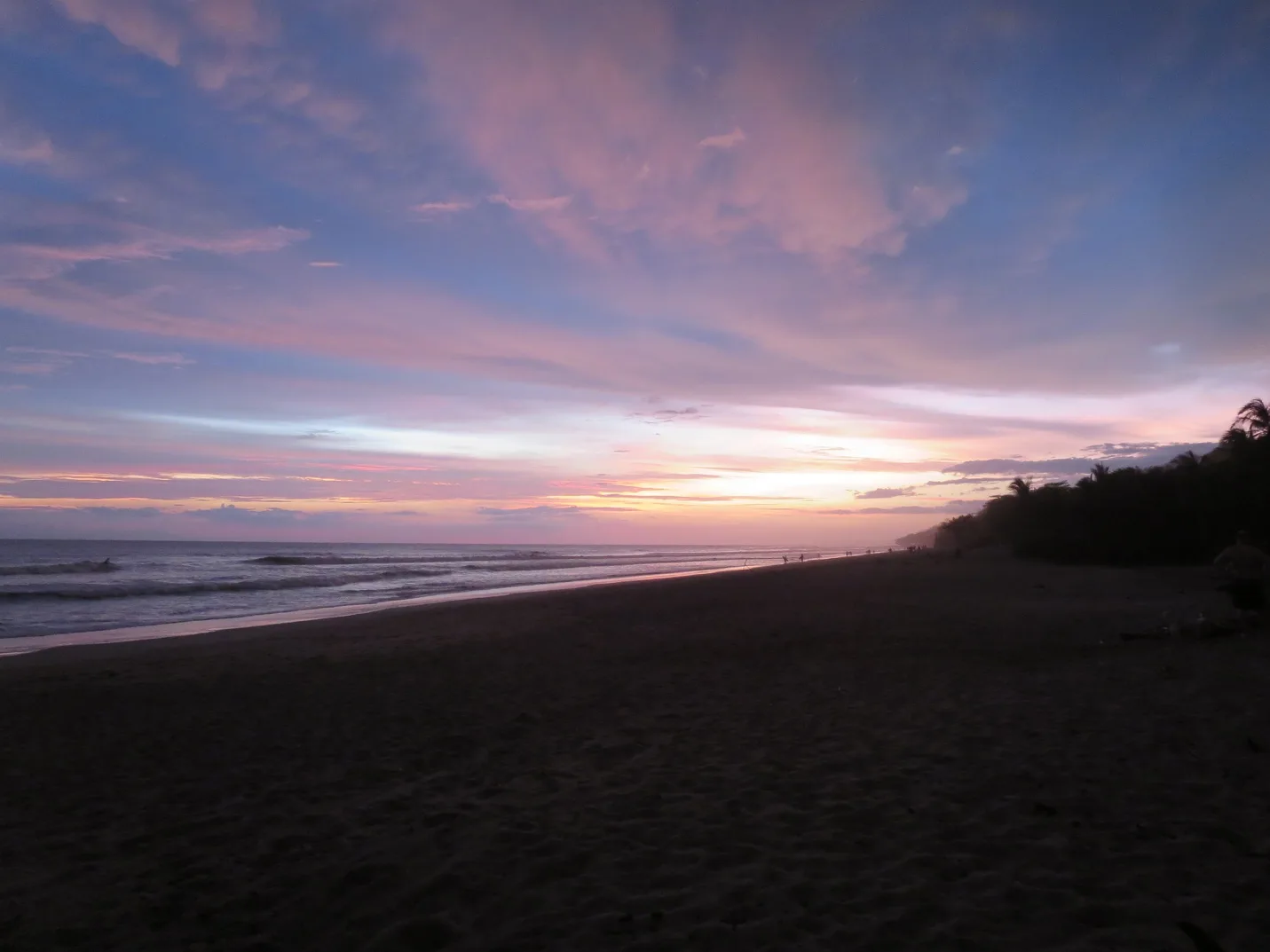
Sunset on Santa Teresa beach
Last week, we began conducting the fieldwork portion of our Directed Research course. My group traveled to the beach town of Santa Teresa, Costa Rica, to survey and interview residents about their perceptions of climate change and water use issues in the region. Santa Teresa consists of a single paved road parallel to the coast, about 2 miles long, and lined with restaurants, hotels, surf shops, and tourism businesses. We walked the length of the town several times each day, talking to locals all along the way. Fishermen described the reductions in marine life that they had observed in recent years, along with temperature and tidal changes. Hotel owners talked about the impacts of climate change on tourism. Notably, though, a surprising number of individuals felt that their own actions had absolutely no impact on the climate.
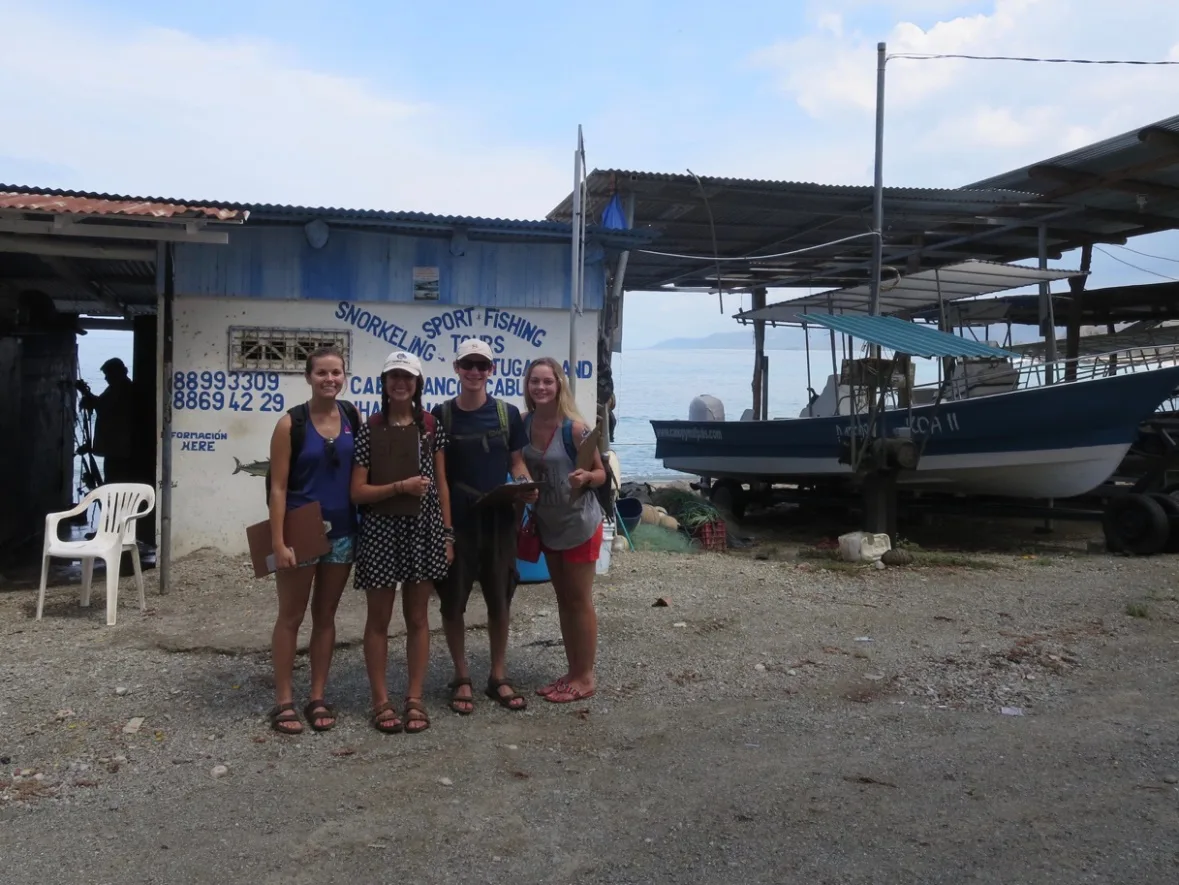
From left to right, students Georgia Lawson, Veronica Fischer, Dylan Guydish, and KyLeigh Richardson
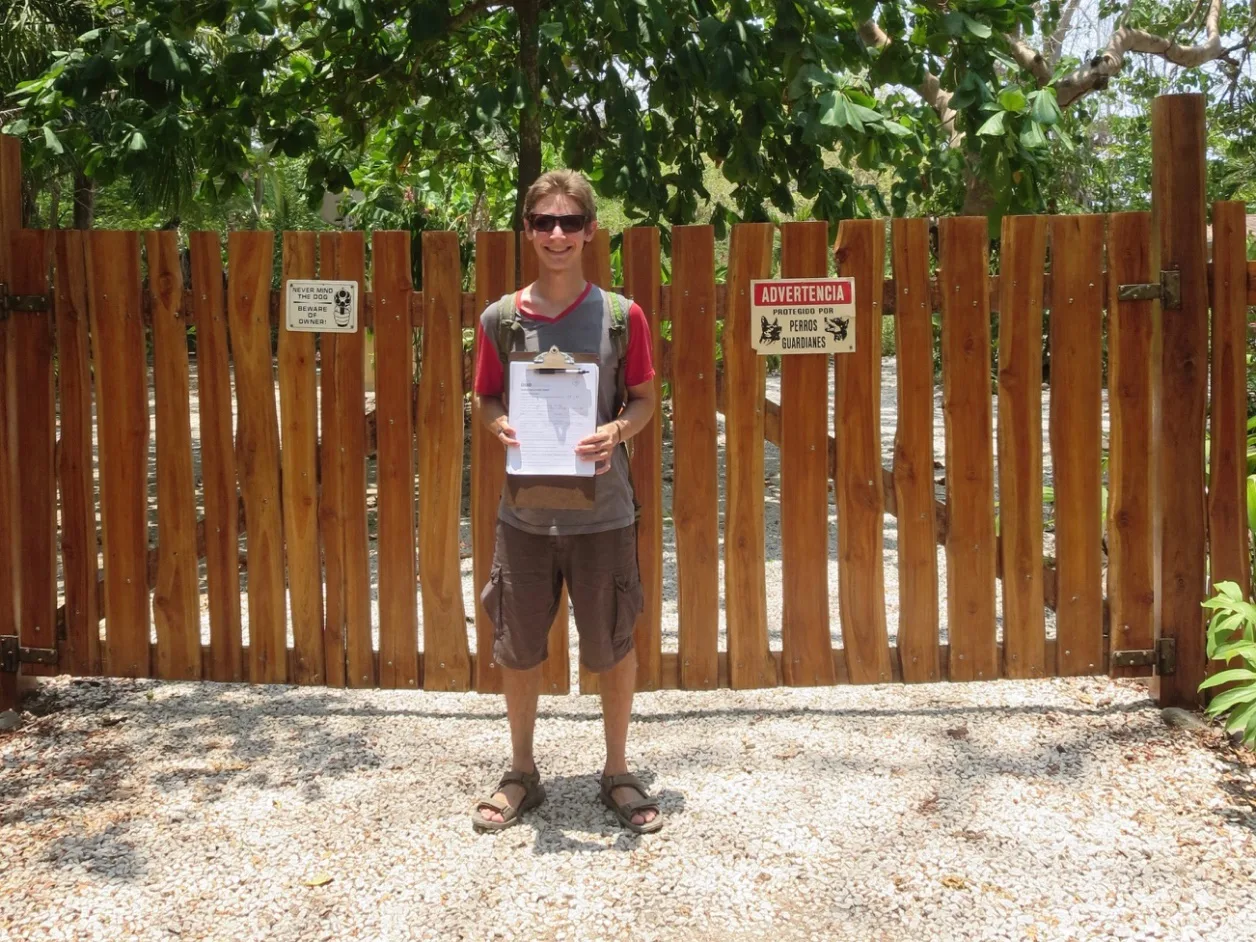
Dylan surveying
The town was struggling with a number of distinct environmental issues, including a scarcity of drinking water and a lack of waste management infrastructure. Despite regular community cleanup efforts, trash was readily found along every stretch of roadside. Many of our interviewees complained about the amount of waste that was illegally dumped or burned, and most were unsatisfied with government attempts to address this problem. Road infrastructure was another major complaint of the residents. Reduced rainfall and increased tourist traffic on unpaved roads had led to a severe dust problem, damaging plants and impacting human health.
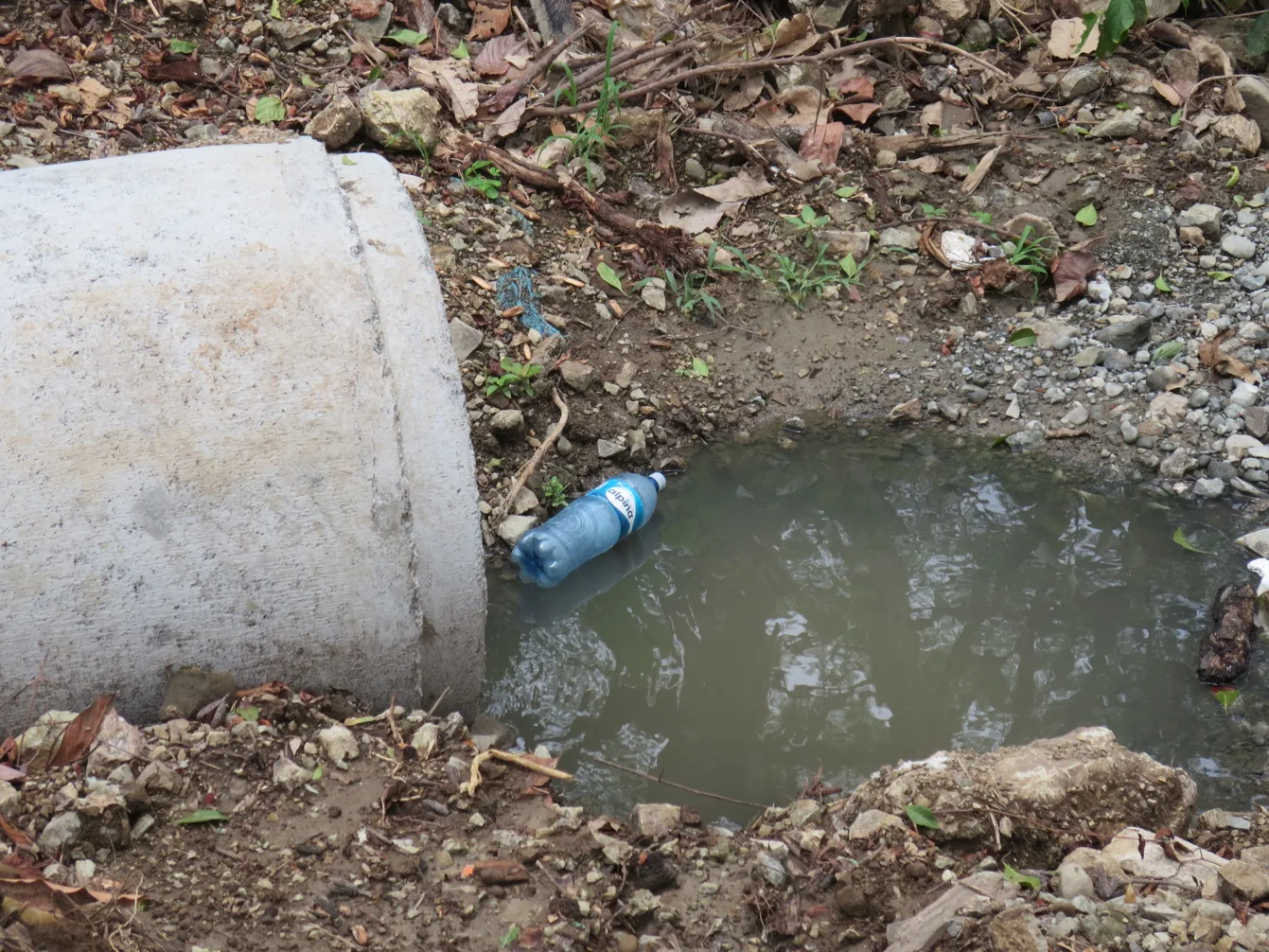
Roadside ditch littered with trash
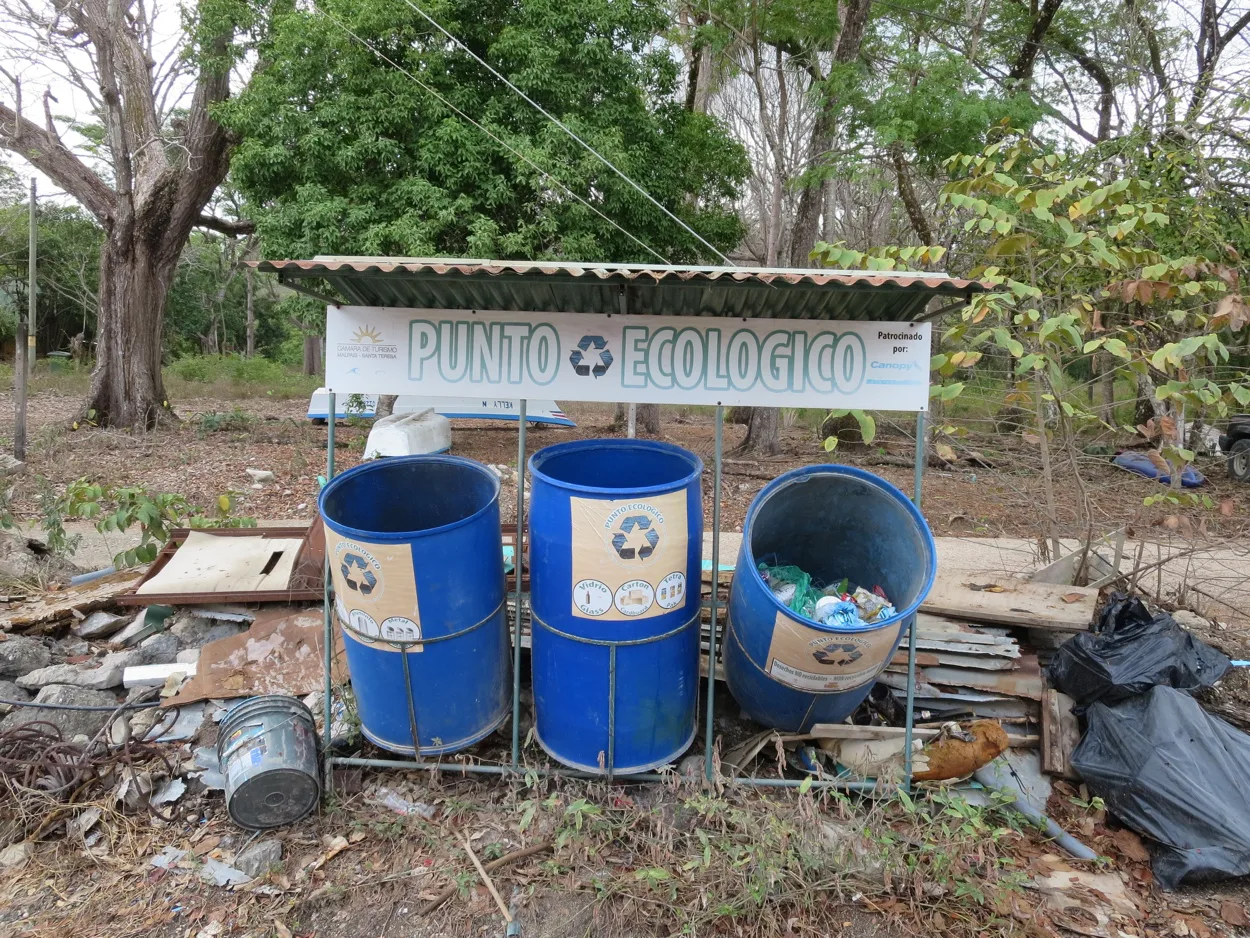
Defunct recycling collection point now overrun with trash
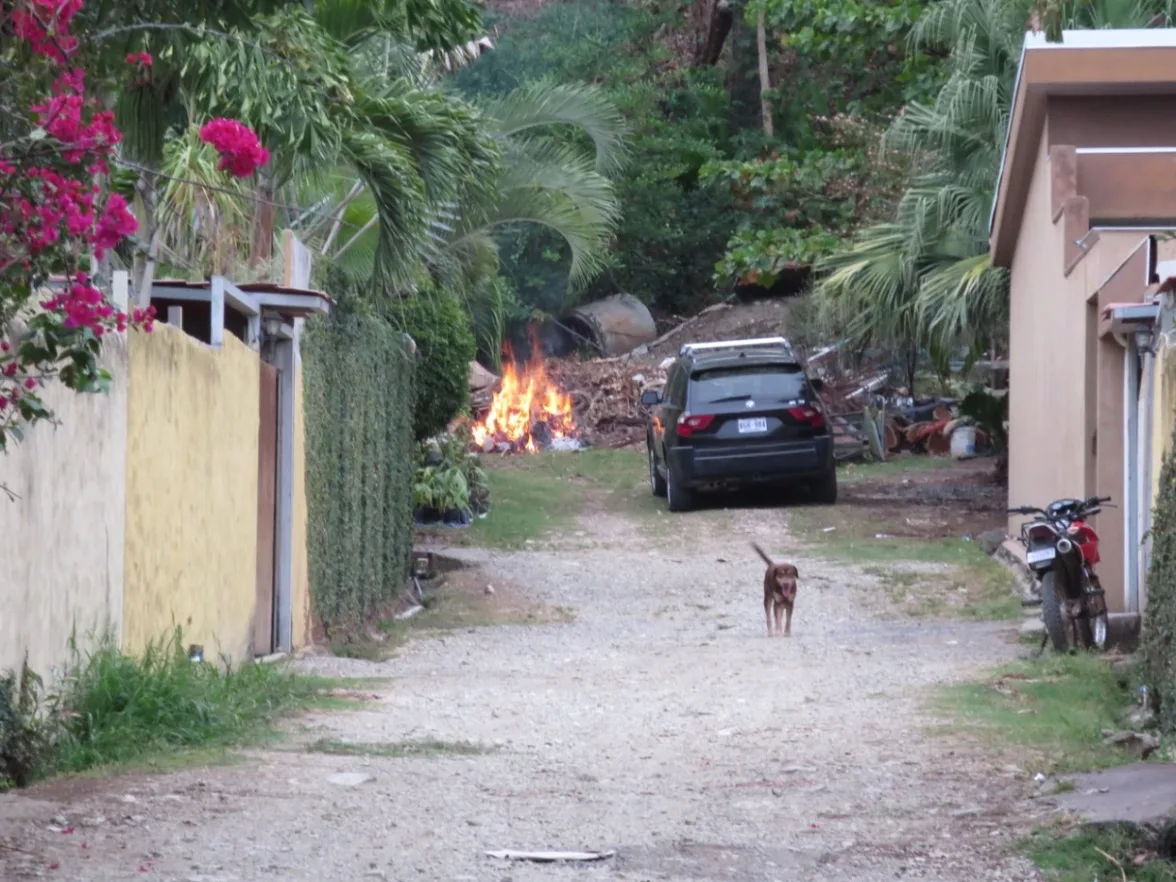
Burning pile of trash and yard waste
When not surveying, we were lucky enough to attend a local surfing competition, taste raw cocoa beans at a sustainable coffee shop, and hike through the nearby Cabo Blanco National Reserve. This week of research allowed us to experience a new and unique part of the country, and most importantly, to learn firsthand about the environmental issues that its residents are facing. These people will remain vividly in our memories as we begin incorporating their personal stories into our final projects.
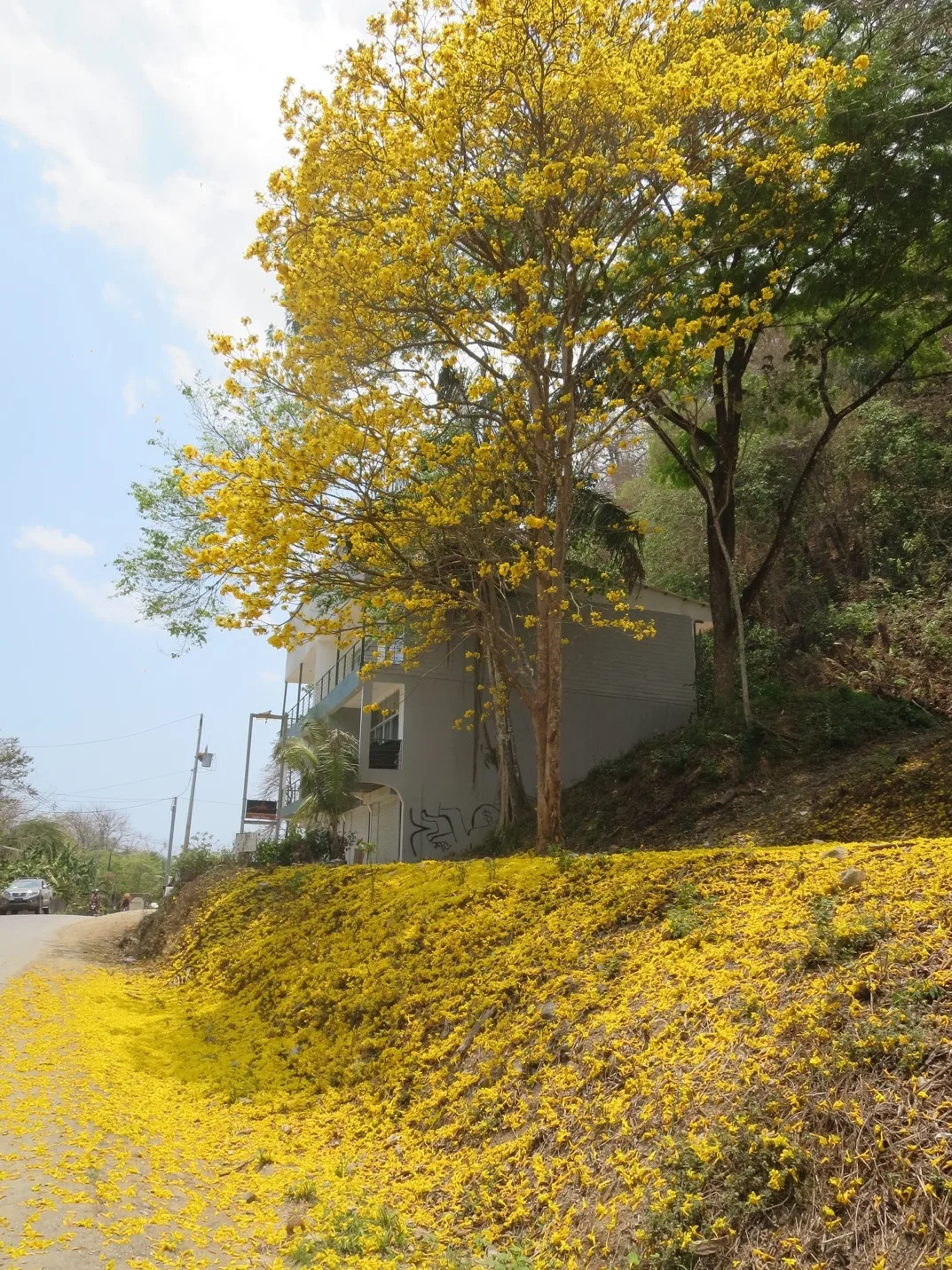
Corteza Amarilla (Tabebuia ochracea) tree species shedding its yellow flowers
Related Posts

